- Home
- Conn Iggulden
The Falcon of Sparta Page 6
The Falcon of Sparta Read online
Page 6
‘You will see him again,’ Cyrus said.
The Spartan nodded.
‘I will,’ he said with absolute certainty, his eyes dark in his sunburned face. ‘He will not go far from the river, no matter how long I make him wait. I will tell him you sent the news back to Sparta so that his name could be marked on the white wall – and his death pay, which will go to feed Spartan sons and daughters as they grow. And of course I will tell him you came to me seeking aid for your vengeance – and that I did not turn you away.’
‘I will have to lie to many of those who come to stand with me,’ Cyrus said seriously. ‘Do you understand? I wanted you to know the truth of what I am about.’
‘Your judgement was sound, then. I would not have forgiven a lie from you, Highness,’ Clearchus replied. ‘You buy my service and you earn my friendship. I will not fail you, but I will not lie for you either. If the other officers ask me why you are gathering a dozen small armies to march into the deserts of your Persian empire, I will tell them to ask you, that I am a simple soldier who stands where I am told to stand, and kills when I am told to kill.’
Cyrus blinked at the intensity of the man who sat before him. Clearchus was like a lion with his claws sheathed, who nonetheless knew he was still a lion.
‘You should let me purchase a horse to carry you,’ Cyrus said, giving himself time to gather his thoughts. ‘It is not seemly for a general to walk alongside his men.’
‘In Sparta, it is,’ Clearchus said. ‘I’ll walk.’ He shifted uncomfortably. ‘In truth, I do not like horses. They peer at me.’
‘You are afraid of horses?’ Cyrus said in amazement, without thinking. The Spartan general became very still, as if time had stopped. Cyrus swallowed.
‘I am afraid of nothing,’ Clearchus said. ‘I do not like horses. That is quite different.’
Cyrus found he had been holding his breath and he breathed out slowly.
‘Yes, of course. They are not the same.’
Clearchus regarded him for a time. He seemed satisfied by what he saw.
‘Perhaps we should discuss pay,’ he said.
Cyrus looked up.
‘You will serve me?’
‘For one gold daric a month, per man, or twenty-six silver drachmas, yes. Raised to one and a half darics for battle or periods of unusually arduous service. I have two thousand Spartiate men, some eight hundred helot slaves and a few perioikoi – warriors of a lesser class. I suggest half pay for the perioikoi. The helots, of course, will need only food and equipment.’
‘Of course,’ Cyrus agreed. The terms were fair and no more than he had paid before, though he sensed the general considered it an irrelevance.
‘I will put my seal to ten thousand darics, general. Will that be enough?’
The sum was vast and Clearchus did well not to choke on his wine. He wiped his chin.
‘It is enough, Highness, yes. For so much, you will be honoured at home – and feared by your enemies.’
‘You describe the only things of value in the world, general,’ Cyrus said, probing the man. ‘Is gold and silver so important, in comparison?’
To his surprise, Clearchus chuckled.
‘There speaks one who has never put a child out in winter, when there was no food. Of course it is important. Your gold will pay for Spartans to be trained, for our people to survive and live in peace in the valley of Eurotas. No foreign army has entered our land of Hollow Lacedaemon since we discovered our way, not for six hundred years.’ He paused, considering his audience. ‘Though the Persians came closest.’
Cyrus inclined his head, accepting the compliment as it was intended.
‘For yourself, though. That is what I meant. You serve for gold?’
Clearchus leaned forward, resting his forearms on his knees.
‘Every one of my men is between twenty and sixty years of age. We march and fight for Lacedaemon for forty years, because it is … water spilled on a hot stone, our home. It must always be renewed, or it will vanish as if it had never been.’
‘And when you go back there, when you have served, what then?’
‘When we return, we will be fed and allowed to sit in peace, though the young boys mock old soldiers as they sleep. It was ever thus – all boys are fools.’ He smiled and rubbed a hand over his face. ‘I have not yet found a better way to spend a life than ours, Highness. Your gold buys my service, yes, but more, you will have the pleasure of seeing Spartans in battle. It is a rare gift and worth more than mere coins. After all, most men see it only once and never again.’
He leaned back and Cyrus smiled with him, the spell broken.
‘Wine here,’ Cyrus called to his servants. ‘We must raise a cup to this rare gift.’
As he turned back to the Spartan, his expression became serious.
‘Thank you, general. When I hear you speak, I miss Anaxis all the more.’
‘Fight well and perhaps one day you will tell him that yourself,’ Clearchus said.
‘I am a Persian prince, though perhaps my status is uncertain this year.’
‘There are princes in Hades, my lord. I have put one or two there myself.’
‘Now you are amusing yourself at my expense,’ Cyrus said.
‘I am, Highness, yes.’ The Spartan drank from his cup and smacked his lips in pleasure. ‘I know this wine. It is from home.’
Cyrus smiled, pleased his gesture had not been wasted.
‘Made by the sun and the soil and the vine.’ He raised the cup and the Spartan copied the gesture. ‘To those who have gone before. May we see them again,’ Clearchus said.
Without another word, they clinked the cups together and drank them dry.
5
Xenophon opened the street door and stepped through, pressing his back to it as it closed. The young man was flushed and angry-looking, his chiton tunic and cloak bearing darker marks. As he breathed hard, something wet and foul slipped from the hem and landed on the stone floor.
The Athenian who owned the tiny house looked up from a table laid with a dozen kinds of green stems and leaves, as well as an array of mackerel he was deboning with a knife. The man was short and stocky, with white hair and a bald head as brown and freckled as old leather. Despite his age, he gave an impression of strength, with powerful arms and chest and slightly bowed legs showing bare under the table.
‘Xenophon!’ Socrates cried in delight, coming round the table and wiping his hands on an apron before holding them out in greeting. ‘Have you come to join us for dinner? I have a Cretan recipe with bay leaves – and ripe figs after.’
Before the young man could reply, Socrates drew him into an embrace with great enthusiasm, almost lifting him from the ground. Despite himself, Xenophon found his mood beginning to improve.
‘Xanthippe!’ Socrates roared over his shoulder. ‘Another for dinner!’ He stood still for a moment, listening. ‘Where is that girl? Is it too much to ask that she greets my guests? I am up to my elbows in fish. Your cloak is wet there. Is it raining? No, I would have heard. I would have felt it – the roof leaks again, for which I am also blamed. So, not rain. I see you smile now, as I seek your secrets, but you were not smiling before. It is those gangs of politicals, those children, of course.’
‘They are not children, Socrates. They grow more bold and more cruel every time I am seen on the street. They live and breed like rats.’
‘Better for them to throw fruit than stones, old friend.’
‘It was both fruit and stones,’ Xenophon said. He clenched his fist and flipped back the stained cloak to reveal a Spartan kopis on his hip. Socrates whistled softly.
‘That is not a weapon for the streets of Athens. If you draw a Spartan blade in the shadow of the Acropolis, what will you do with it then?’
‘They are a violent mob! They watch for me and pass word and gather wherever I go. I hear their steps clattering in the alleys, then they appear, roaring at me, showing me their red mouths! Spitting! You would have me walk throug
h flying stones and screeching youths unarmed?’ Xenophon demanded. He lowered his head. The humour had vanished in him, so that once more he looked mulish and flustered. ‘When I was on the council, I had the right to bear arms. It has not been taken from me, with so much else. Would you have me defenceless?’
Without a word, Socrates took him by the arm and brought him further into the single room that was the heart of the house, with a set of rickety stairs to a single bedroom above. Xenophon ducked suddenly, barely avoiding a low beam he had struck many times before. He scowled and his friend chuckled.
‘You see how it is better to be short?’
‘I did not have this trouble in your old house,’ Xenophon said. ‘At least there, I could stand up straight.’
‘But the rent! That old woman who owned it squeezed me like a plum.’
He picked up a couple of figs from the table and gestured with them, making Xenophon wince. Socrates sighed.
‘When I was a mason, I ate and slept like a king. When I was a soldier, even. You never knew me then, when strength and skill with a sword was all I had. Three campaigns, Xenophon. Three times, I stepped onto the dance floor of Ares for my masters – and I saved the life of Alcibiades!’
‘Really? You never said,’ Xenophon replied drily.
Socrates clapped him on the shoulder, making him stagger.
‘I have told the tale too many times, I know it, though a good story is a work of art, not unlike a statue. It is the polish that matters, as much as the stone.’
‘The lies.’
‘No, it is not the same. The polish. But let us return to your troubles, my friend. Each day, you endure these taunts and insults to your honour. You say they grow worse. You show me a Spartan kopis like you might use it, though your enemies are too young to attack in honour. Will you rush among them and kill children?’
‘They are not children,’ Xenophon replied.
‘They are men, then? Bearded and trained? Armed for war?’
Xenophon shook his head, recalling the ragged gang members who had darted at him. He saw Socrates required him to answer out loud and he sighed.
‘No, they were not men.’
Socrates nodded, holding a finger in the air to mark the point.
‘To threaten with a blade you will not use feels like the action of a weak man – and, my friend, you are not a weak man. Is that your intention, to wag a bit of sharp iron at them and have them cover their eyes and bow to you?’
‘No,’ Xenophon said reluctantly. ‘Though I thought I might.’
‘It is a good idea to think things through before you are arrested for injury or murder, I have always thought. Here, chop these for me, as fine as you can. Not the bay leaves, they are merely a herb. Ah, the greens – they are the stuff of life! The vigour of sorrel and nettle, amaranth and vetch and chicory and black nightshade.’
‘Is that last not a poison?’ Xenophon asked, as he took a knife and began to chop.
‘The nightshade? Not if it is picked ripe and boiled, as I have done. Would I risk the lives of my boys? Of my noble guest? No. The whole world is a larder for a man with eyes to see, with hands to tease the good leaves from mere grass. Ask me how much this meal cost, Xenophon, this meal that will feed my wife, my sons, my guest and my own appetite, which is too often my master and never my slave?’
Xenophon eyed the array of mackerel, more than a dozen of the fish laid out on the worktop. He knew the philosopher too well, however.
‘Not a single coin,’ he said.
‘Not a single coin!’ Socrates echoed as he spoke. ‘Ah, you are an oracle! Old Anatoli on the docks gave me the fish in return for my helping him mend his net. The knots are very interesting and I took away a new skill – worth more than a few fish. He thought he was paying me for my labour.’ He leaned in close, his voice dropping to a conspiratorial murmur. ‘In truth, I would have paid him. Eh?’ He slapped the wooden table with a powerful hand in his delight, making the whole room shake.
Xenophon looked up at a clatter from overhead. He wished his old master would accept a gift or even a loan to live in a better quarter of Athens, but Socrates would not hear of it. A neighbour’s argument began on the other side of the wall, quite audible as Socrates went on.
‘But you distract me, Xenophon. With your talk of herbs and fishermen. Let us return to your problem. I do not like to see you angry. So … if you will not attack these unbearded youths, if you will not threaten them like an old woman, will you then gather them around and explain how they should not taunt and throw stones?’
‘I do not think I will do that, no. My dignity will not survive it.’
‘That is true. Boys can be rude, as I still remember. They would mock a gentle hand. And yet … you will not be harsh. Will you use a stick? Will you kick them? Better than a kopis knife, I think.’
‘I might,’ Xenophon said with satisfaction, imagining it. He chopped the wild greens as he spoke, his movements quick and sure as he added each handful to a huge bowl, ready for the family.
‘Did you bring wine?’ Socrates said. Xenophon shook his head, embarrassed. The philosopher shrugged, reaching beneath the table for an old wineskin and pulling out the plug. ‘Never mind, there is a little here. Men of words cannot talk dry. Am I a wild ass or a goat to drink water? No, a man drinks wine, to warm his blood, to step outside himself and look back with another’s judgement. That “ec-stasis”, that stepping out, it is a secret of a good life, my friend. We cannot always be ourselves. It is too wearying.’
Xenophon found himself smiling as the older man set two rough cups before him and filled them both.
‘My dear Xanthippe does not see the value in the wineskin, not as I do. She …’ Socrates thought better of whatever he was about to say as his wife came down the stairs. ‘My dearest flower, Xenophon has consented to join us for our meal this evening. Did you not hear me call?’
‘I heard,’ Xanthippe said, curtly. She seemed irritated and Xenophon looked aside, allowing them their intimacies. ‘The boys were out on the neighbour’s roof again, did you know?’
‘My beloved, we have a guest. And boys do climb. It is in their nature.’
‘Hmm. When they are encouraged, perhaps. You are welcome in our home, councillor, such as it is,’ Xanthippe said.
Xenophon bowed deeply to her and touched his cheeks to hers though his hands were full of green curls and threads.
‘Thank you,’ he said. ‘Though, sadly, there is no council any longer. Your husband was helping me with a problem.’
‘Oh yes, he’s very good at solving the problems of others,’ she said.
‘My dear sweet fig, I have opened the last flask of the wine,’ Socrates said. ‘Would you fetch me another couple from old Delios in his little shop?’
‘I will if you have the coin to pay for it,’ she said.
‘He is a friend, my love. Tell him I will pay him next week.’
‘He said you must pay for last month before he’ll give you any more.’
‘Nonetheless,’ Socrates insisted. ‘Tell him I have an old friend for dinner. He will understand.’
Xenophon reached for his purse, but found his arm gripped by fingers that had worked mallet and chisel from their youngest years.
‘You are my guest,’ Socrates said softly. ‘Do not reach for your coins in this house.’
‘It is only what I should have remembered to bring.’
‘We are where we are,’ Socrates said with a shrug. ‘Leave me my pride, my foolish vanity. Three new students came to join me last week.’
‘You should teach them how to shape stone,’ Xanthippe said. ‘At least they would pay you for that. Or how to use a spear and shield. Not for all your questions. They pay nothing for what you give away so freely.’
‘Will you fetch the wine, my pomegranate?’ Socrates asked, his voice hardening.
Xanthippe decided she had pushed him far enough and went out to the street, shutting the door hard behind her.
&
nbsp; ‘She is … a fiery woman,’ Socrates said. He looked adoringly at the door. ‘I do not deserve her.’
‘Does philosophy truly earn so little?’ Xenophon said. ‘I can pay, as your student, if you would let me. I said so when you moved out of your last home.’
‘I am a proud man,’ Socrates said. ‘As all Athenians are. I do not like to go with my hands outstretched, saying “feed me”, “clothe me” to other men. No. I make my own way. I live on my wits. I feed the boys and my wife and if there are some debts and difficult months, what of it? We have such a brief time alive, Xenophon! Should I waste a day in worry? As I sleep tonight, pfft, I could be gone in a draught. My dear Xanthippe might find me cold tomorrow, my wife bereft and weeping, my sons forced to be slaves or to starve. Yet I could die in my sleep as a mason and the result would be the same. I could die on the battlefield and they would suffer just as much. Instead, I ask my questions, and sometimes men see truths they could not see before. It can be its own reward, Xenophon …’
‘Ask me, then,’ Xenophon said grimly.
‘You know the truth already. It is my desire only to pluck it out, to make you hold it to your eye and truly see it. Some men cannot stand that light and grow strangely angry when they look in such a way. Critias was one of those – and his anger was his undoing in the end. May his soul find peace.’
Xenophon bowed his head in memory. Socrates nodded as if agreeing with himself.
‘You are made of better stuff than him, I think. Very well.’
The two men faced each other across the table, the fish and chopped vegetables forgotten.
‘Why do the young men of the street throw stones and rotten fruit at you?’
‘Because they are allowed to run wild. Because this is not a wealthy part of the city. There is no order here.’
‘Do they throw stones at all who pass along this street?’
There was silence until Xenophon shook his head.
‘So, why you, my friend?’
‘You know very well why.’
‘Still, I wish to hear you say it.’

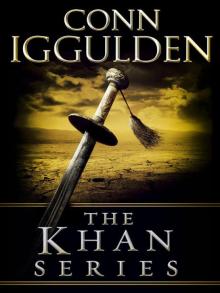 The Khan Series 5-Book Bundle
The Khan Series 5-Book Bundle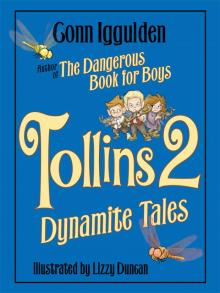 Tollins 2: Dynamite Tales
Tollins 2: Dynamite Tales Tollins: Explosive Tales for Children
Tollins: Explosive Tales for Children The Field of Swords
The Field of Swords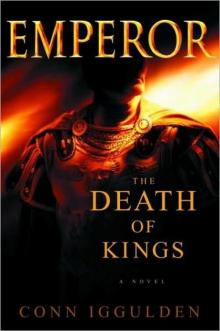 The Death of Kings
The Death of Kings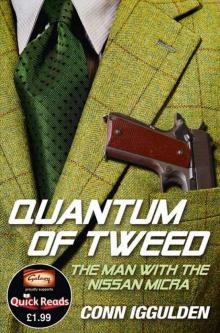 Quantum of Tweed: The Man With the Nissan Micra
Quantum of Tweed: The Man With the Nissan Micra Bones of the Hills
Bones of the Hills Genghis: Birth of an Empire
Genghis: Birth of an Empire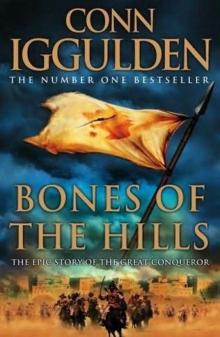 The Gates of Rome
The Gates of Rome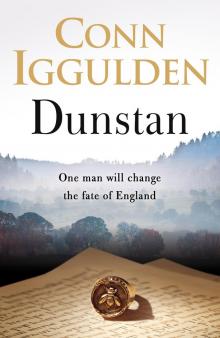 Dunstan
Dunstan Fig Tree
Fig Tree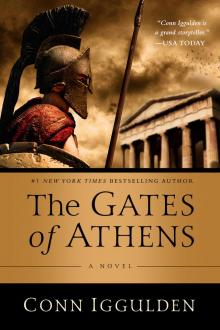 The Gates of Athens
The Gates of Athens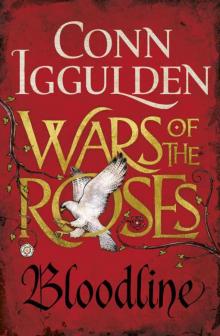 Stormbird
Stormbird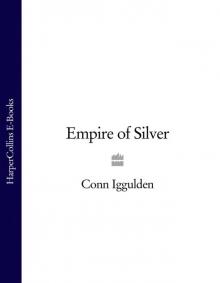 Khan: Empire of Silver
Khan: Empire of Silver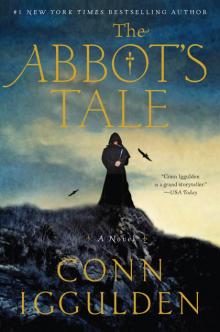 The Abbot's Tale
The Abbot's Tale Gengis: Lords of the Bow
Gengis: Lords of the Bow The Gods of War
The Gods of War Blackwater
Blackwater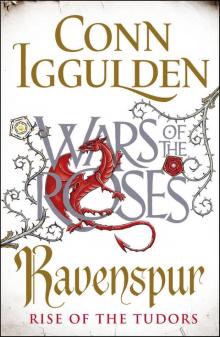 Ravenspur: Rise of the Tudors
Ravenspur: Rise of the Tudors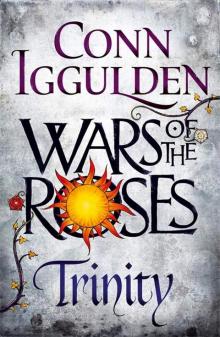 Wars of the Roses: Trinity (War of the Roses Book 2)
Wars of the Roses: Trinity (War of the Roses Book 2) The Gods of war e-4
The Gods of war e-4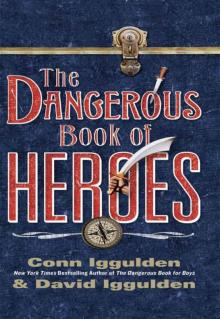 The Dangerous Book of Heroes
The Dangerous Book of Heroes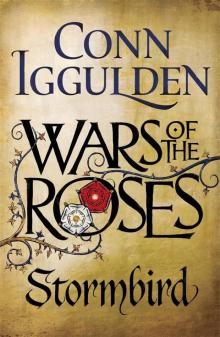 Stormbird wotr-1
Stormbird wotr-1 Emperor: The Death of Kings
Emperor: The Death of Kings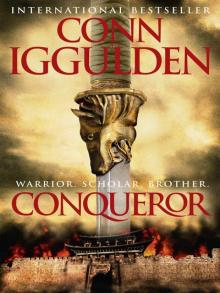 Conqueror (2011) c-5
Conqueror (2011) c-5 The Dangerous Book for Boys
The Dangerous Book for Boys Genghis Lords of the Bow
Genghis Lords of the Bow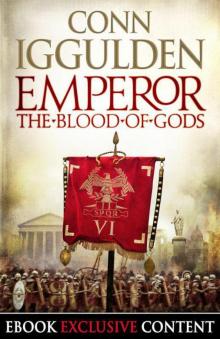 Emperor: The Blood of Gods (Special Edition) (Emperor Series, Book 5)
Emperor: The Blood of Gods (Special Edition) (Emperor Series, Book 5) The Emperor Series: Books 1-5
The Emperor Series: Books 1-5 Lords of the Bow c-2
Lords of the Bow c-2 Lords of the Bow
Lords of the Bow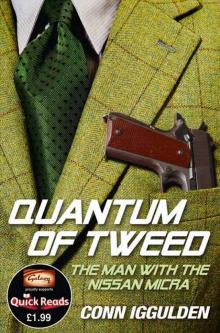 Quantum of Tweed
Quantum of Tweed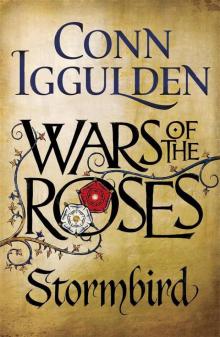 Wars of the Roses 01 - Stormbird
Wars of the Roses 01 - Stormbird Empire of Silver c-4
Empire of Silver c-4 Birth of an Empire
Birth of an Empire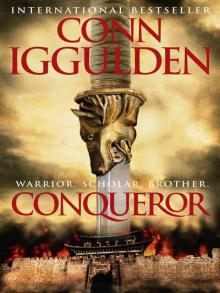 Conqueror (2011)
Conqueror (2011)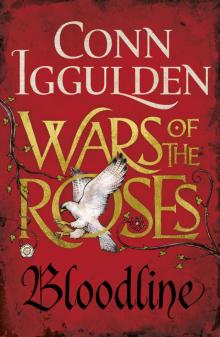 Wars of the Roses: Bloodline: Book 3 (The Wars of the Roses)
Wars of the Roses: Bloodline: Book 3 (The Wars of the Roses) Bones Of the Hills c-3
Bones Of the Hills c-3 Empire of Silver
Empire of Silver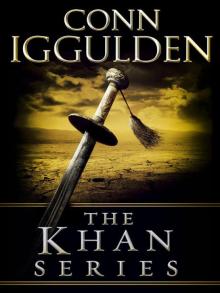 The Khan Series 5-Book Bundle: Genghis: Birth of an Empire, Genghis: Bones of the Hills, Genghis: Lords of the Bow, Khan: Empire of Silver, Conqueror
The Khan Series 5-Book Bundle: Genghis: Birth of an Empire, Genghis: Bones of the Hills, Genghis: Lords of the Bow, Khan: Empire of Silver, Conqueror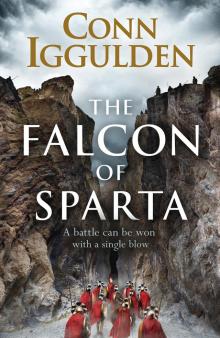 The Falcon of Sparta
The Falcon of Sparta Explosive Tales for Children
Explosive Tales for Children